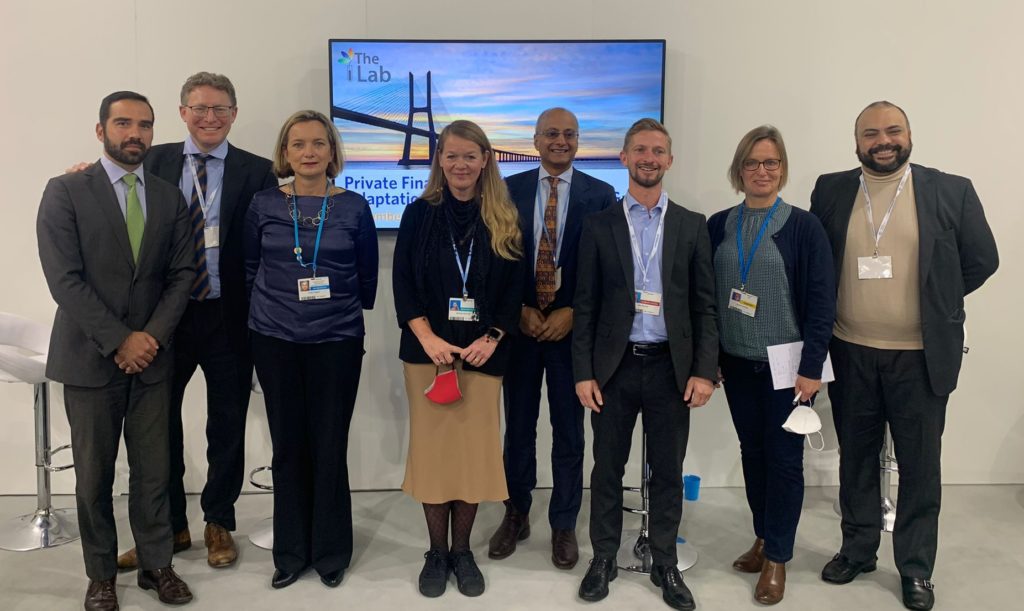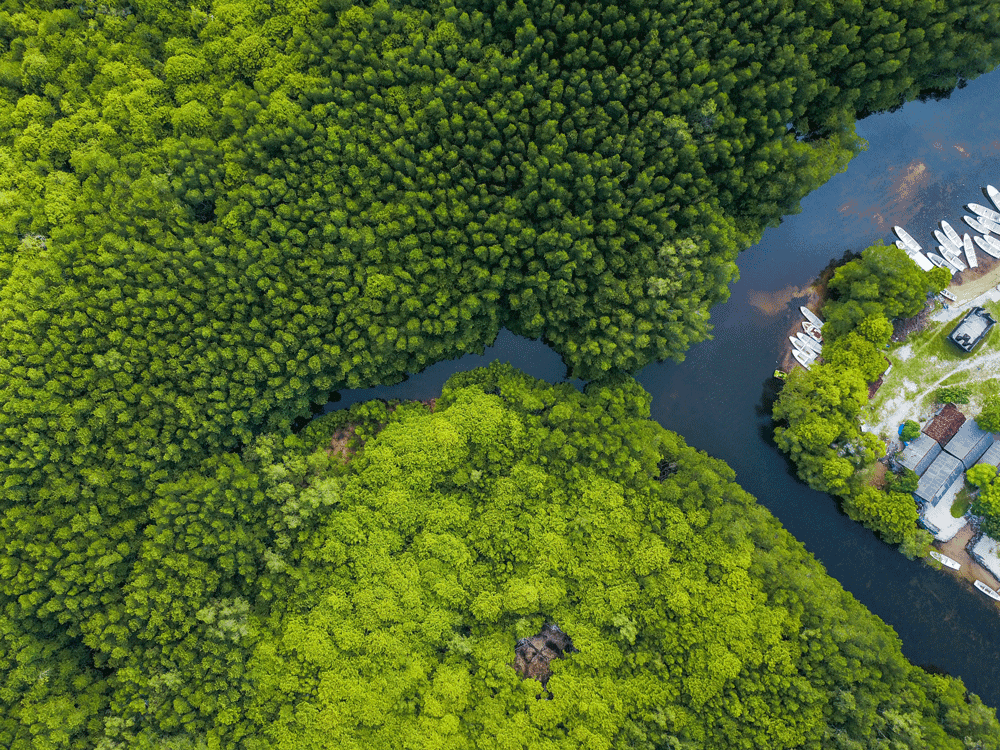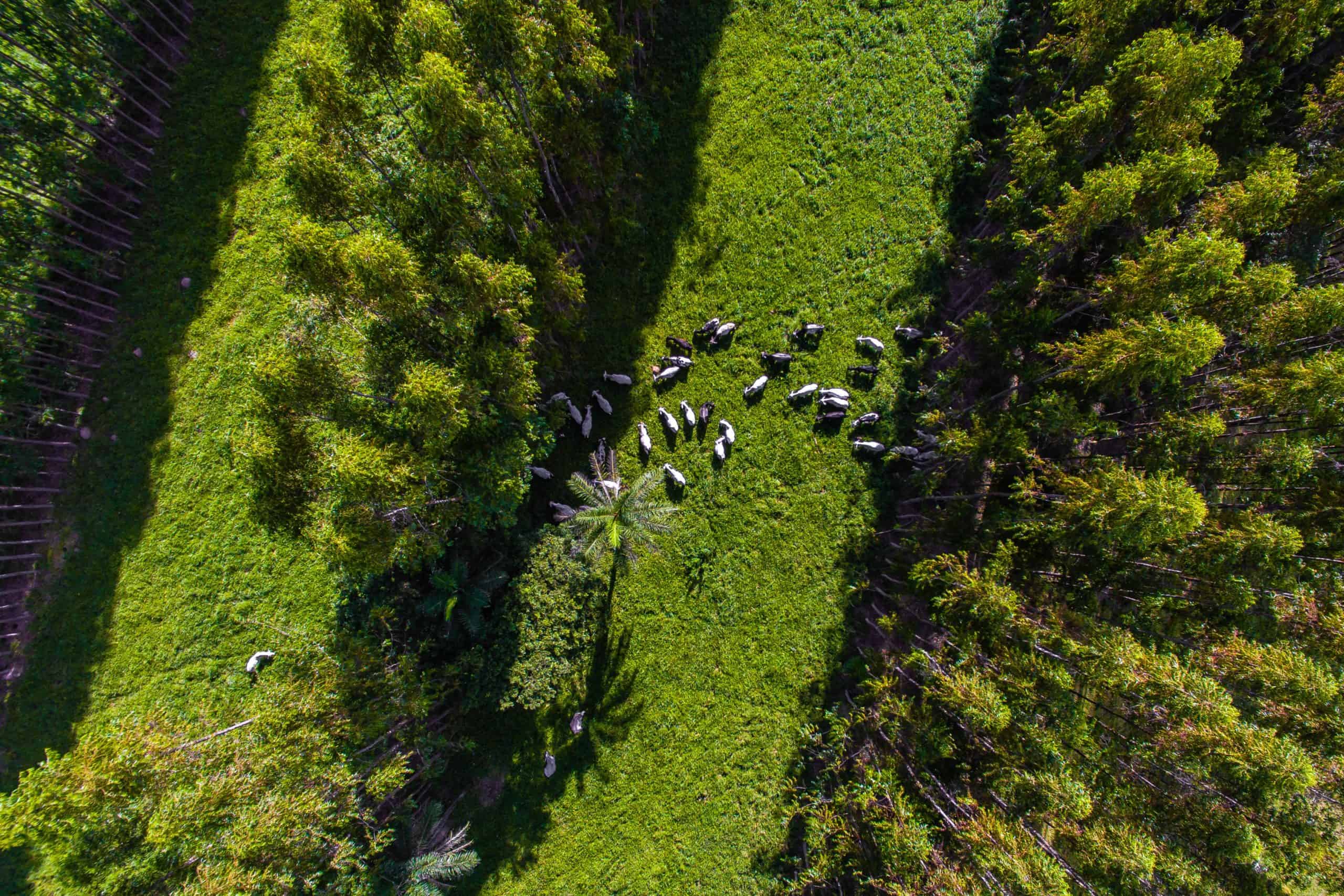On November 8th, CPI organized an event at COP26 on scaling private finance for climate risk adaptation, with the objective of hearing from investors and implementers from the network of the Global Innovation Lab for Climate Finance (the Lab).
Dr. Barbara Buchner, Global Managing Director of CPI, which acts as Secretariat of the Lab, moderated the event, which had participation from different Lab stakeholders including Lab Members (Barbara Schnell, KfW; Abyd Karmali from Bank of America, Rowan Douglas from WTW, and Nabil Kadri from BNDES); Lab Observers; and Lab proponents (Emily Pidgeon from Conservation International and José Pugas from JGP Crédito).
The panelists provided insight on what is needed to accelerate adaptation finance, on what success looks like, and on strategies to reduce key barriers to adaptation finance.
Panelists highlighted the different roles that institutions have in mobilizing capital and deploying it into adaptation projects, from public developments’ responsibility in creating enabling environments, sharing data, and putting into place the structures needed to bring different stakeholders together, to the private sector’s role in co-creating transformative instruments and investing in these solutions.
They also noted the Lab’s essential place in all of this, and the impact the Lab has made by convening key actors and stimulating dialogue on climate finance, as well as crowdsourcing and developing innovative ideas that can address key barriers in financing different sectors (particularly for climate adaptation).
Another key point panelists brought forth was the importance of partnerships and of engaging with the finance world, particularly from the standpoint of NGOs, in order to ensure that we can deploy the resources needed for green infrastructure, nature-based solutions, and climate adaptation and resilience.

Nabil Kadri (BNDES), Rowan Douglas (WTW), Emily Pidgeon (Conservation International) Barbara Buchner (CPI), Abyd Karmali (Bank of America), Ben Broché (CPI), Barbara Schnell (KfW), and José Pugas (JGP Crédito).
Insurance instruments were mentioned as an important tool for adaptation finance, and an example of this was provided by Conservation International, Lab proponents of RISCO. RISCO is a company with a business model that uses insurance and carbon credits to invest in mangrove restoration and conservation in areas with coastal assets. Such effective models help strengthen the business case for nature-based solutions, while also supporting local vulnerable communities to build resilience to climate change.
During the event, experiences from another Lab instrument, the Sustainable Agriculture Finance Facility, shed light on the importance of catalytic capital in financing adaptation, in this case, sustainable food systems, and agriculture. Blended finance can bridge the gap and create a culture of long-term and invest impacting in emerging markets, contributing to a transition towards more finance for projects that deliver on adaptation and resilience objectives.
The event closed with panelists’ thoughts on what is needed to get finance to where it’s needed and their “wish lists” for adaptation finance. Panelists mentioned the importance of instruments that can bring long-term investments and that can be replicated and bring scale.
They noted the potential for identifying concessional funding for adaptation mechanisms in a “one-stop-shop” way, “retraining the invisible hand,” and economically valuing ecosystem services.
Other key measures noted by panelists included changing business models, integrating climate risk into investments, aligning financial regulations, and encouraging guarantees to accelerate resilience finance.

